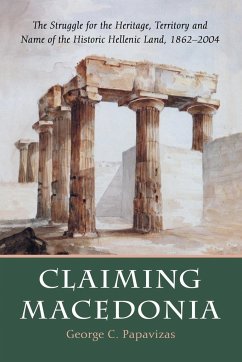For nearly 130 years, the Greeks, the Bulgarians, and the Yugoslavs have fought over the question of who has the historical and demographic rights to use the name ""Macedonia."" Historically the land of Philip II and Alexander the Great, Aristotle, Mount Olympus and the Greek gods, Macedonia boasts an impressive cultural heritage that the Greeks have claimed as their own. In 1991, a state resulting from the breakup of Yugoslavia proclaimed itself Republic of Macedonia (FYROM), angering the Greeks and adding fuel to the persistent dispute. This book argues the Macedonian question from a Greek perspective. It questions FYROM's right to the Macedonian name, arguing that Greece possesses the historical, cultural, linguistic, anthropological and demographic ties to the legacy of Alexander. Research examines the origins of the dispute between Hellenism and Bulgarism, the Balkans wars, the world wars and the rise of Tito's communism in Yugoslavia. The book also shows, step by step, the misconceptions about the legacy of Macedonia as promulgated by international communism, and carefully analyzes communism's role as the main protagonist in the formation of the new state and as a pivotal source fomenting and fueling the Greek Civil War. Cover to cover, it traces the conflict's change from an initial struggle between Hellenism and Bulgarism to the present dispute between Athens and Skopje.
Hinweis: Dieser Artikel kann nur an eine deutsche Lieferadresse ausgeliefert werden.
Hinweis: Dieser Artikel kann nur an eine deutsche Lieferadresse ausgeliefert werden.








